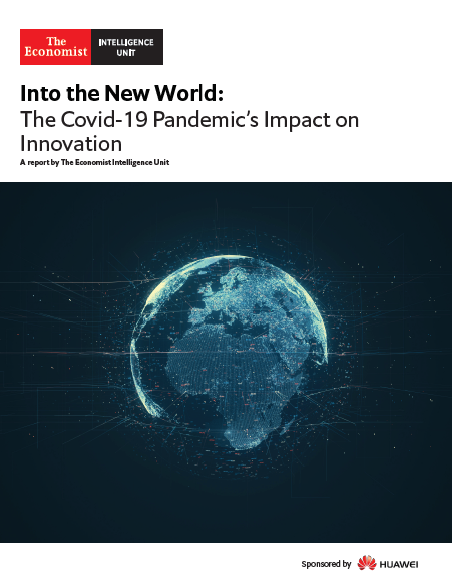The Covid-19 pandemic is the most significant global disruption since World War II and the first truly global public health crisis in the modern era. Entire industries have ground to a halt; international travel has receded to its lowest level in 75 years; nearly all of the world’s leading economies are in recession; and at the time of publication, more than one million people have died from the virus and its complications. As the pandemic forces profound change in all aspects of society, technology is playing a starring role in enabling organisations to respond to disruption. Technological laggards have been exposed, and the most resilient organisations are those that had already embraced automation, cloud computing and collaboration platforms.
On the surface, digital transformations during the pandemic have resembled the advances of recent decades, characterised by a shift to new but proven and commercially available technologies. Many of these transformations seem predictable—or at the very least, intuitive. However, deeper analysis reveals that underlying innovation processes are changing, which has significant implications for the post-pandemic era. The public health crisis has motivated organisations to accelerate plans for technology deployment, governments to waive regulatory requirements, and consumers to accept new products and services.
This research is the product of interviews with over 30 industry experts regarding changes to innovation processes at their organisations; a scan of over 2,000 articles in technology media to identify leading, sector-specific innovations; and an assessment of innovation disruption, using a framework based on Everett Rogers’s theory of the diffusion of innovations.
The research programme focused on the underlying processes of innovation, as well as the environmental factors that facilitate innovation. As the Covid-19 pandemic continues to cause global disruption, an urgent motivation has emerged to address the current challenges and plan for a new world. This presents a valuable opportunity to observe how innovation processes are changing.
Overall Insights
- Simple solutions are almost always preferred unless transformational plans are already under way.
- Observable success still matters, although it is increasingly industry-agnostic.
- Trials and product rollouts are being condensed—perhaps permanently.
Healthcare
- Disrupted access to physical health records has accelerated the digitisation of health data in hospitals and reduced organisational inertia in integrating complex systems.
- The rapid uptake of telehealth and remote care management has reduced the burden on on-site facilities.
- Remote care proliferation is accelerating artificial intelligence (AI) research.
- An emerging culture of collaboration and open data during the pandemic—and wider application of AI—has revolutionised research.
Media
- Media production has shifted to the cloud, and there has been an uptick in experimentation with emergent technology as news broadcasting and entertainment decentralise.
- While automation has increasingly been deployed to respond to the need for real-time information on the pandemic, there is a consensus that many existing news industry tasks cannot be automated.
Education
- Simple technologies, such as public broadcasting, have been adopted to address the gaps in access to digital infrastructure.
- The pandemic has helped to drive a change in attitudes in favour of using more, technology, but education remains a laggard relative to other industries.
Transport
- The urgency of the pandemic is providing use cases for autonomous vehicles that would not otherwise exist.
- The need to minimise contact has pushed the minority of digital holdouts to abandon outdated documentation practices in favour of modern platforms backed by cloud, automation and co-ordination technologies.
Government Administration
- Automation is being used to deal with the additional workload arising from the pandemic, but it is not taking over existing tasks.
- The pandemic is changing minds and culture in government, leading senior officials to embrace new technology and innovation to a greater extent.






